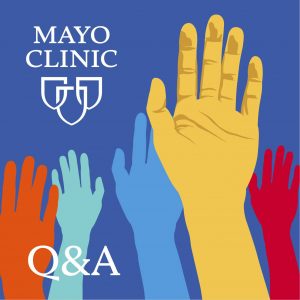-
Cancer
Mayo Clinic Q&A podcast: Integrative oncology uses lifestyle medicine approach

Integrative medicine uses an approach to health care that includes practices not traditionally part of conventional medicine, such as herbs, acupuncture, massage, yoga and meditation. Integrative oncology incorporates these therapies into conventional cancer care.
Integrative oncology helps people with cancer feel better by reducing the fatigue, nausea, pain and anxiety and other symptoms that come with cancer and cancer treatment.
"Integrative oncology is a practice where we are using lifestyle medicine," explains Dr. Stacy D'Andre, a Mayo Clinic medical and integrative oncologist. "We combine all of these modalities to help our cancer patients, not only with the quality of life, but also to hopefully improve outcomes as well."
Focus on diet, exercise and sleep are important parts of integrative medicine, and can help patients during each stage of their journey. This includes managing symptoms and treatment side effects.
"The great thing about this type of practice is that it really empowers the patient, and patients become very active in their care," says Dr. D'Andre. "And because they're the ones doing the work — they're working on their diet and they're doing the exercise — we're just guiding them. These are things that they can do and they can control to improve their health and outcomes."
On the Mayo Clinic Q&A podcast, Dr. D'Andre explains how integrative oncology helps people with cancer and discusses integrative medicine research underway at Mayo Clinic.
Watch: Dr. D'Andre discuss integrative oncology.
_______________________________
For the safety of its patients, staff and visitors, Mayo Clinic has strict masking policies in place. Anyone shown without a mask was recorded prior to COVID-19 or recorded in an area not designated for patient care, where social distancing and other safety protocols were followed.








